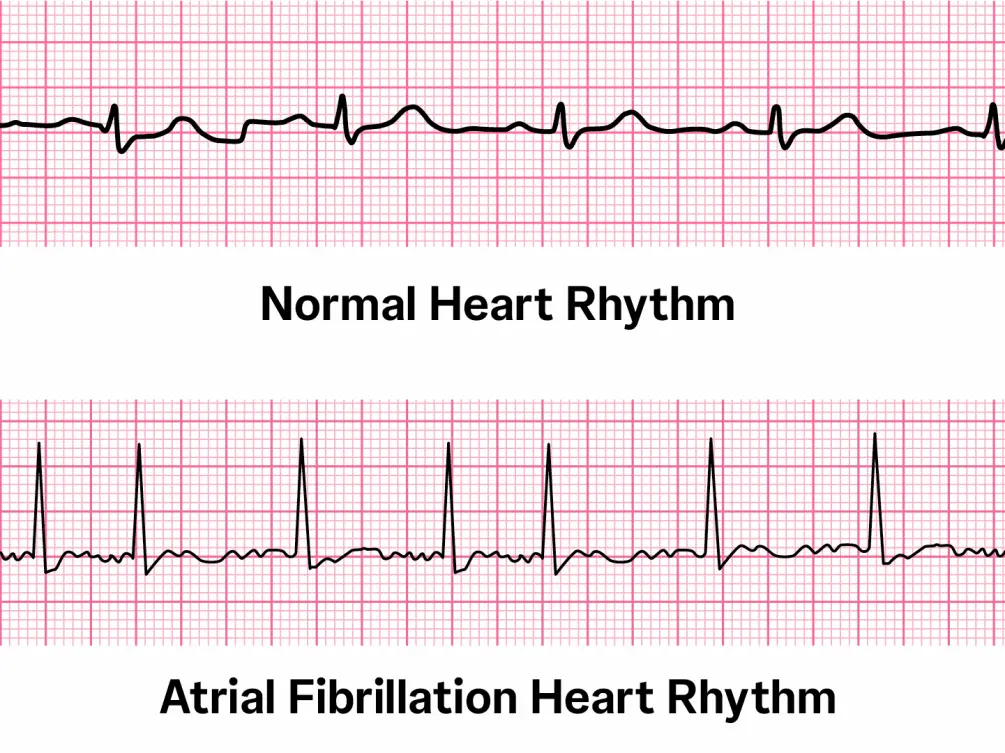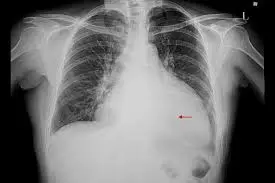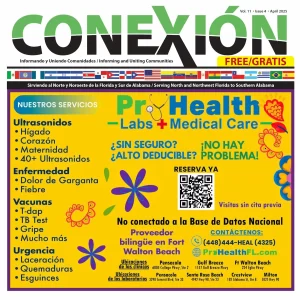Heart Disease Signs and Symptoms!
Written by: Marcos Otero, Retired Physician Associate
Introduction:
Our heart is the engine that keeps us going, beating over 100,000 times daily to deliver oxygen and nutrients to every corner of the body. Yet, heart disease remains one of the leading causes of death globally, impacting millions of lives. Understanding the symptoms, causes, and ways to prevent heart disease is crucial for those at risk and anyone who values a healthy future. In this article, we’ll explore the many aspects of heart disease—from recognizing warning signs to taking proactive steps toward prevention. Remember, even small lifestyle changes can significantly reduce your risk of heart disease. Empower yourself with the knowledge to protect your heart and lead a healthier life.
Key Points About Heart Function:
- Resting heart rate: Adults’ regular resting heart rate is between 60 and 100 beats per minute.
- Factors affecting heart rate: Age, fitness level, emotions, activity level, medications, and body position can all influence heart rate.
- Blood circulation: The heart pumps blood through arteries to reach different body parts and returns deoxygenated blood through veins to the heart for reoxygenation.
- Electrical conduction system: The heart’s rhythm is controlled by a specialized electrical system that initiates and coordinates contractions.
Reasons The Heart Can Be Affected and Diseased
There are many reasons the heart can be affected and diseased. Below are the various reasons or causes.
Abnormal Heartbeats (Heart Arrhythmias)
A heart arrhythmia is an abnormal heartbeat. Your heart may beat too quickly, too slowly, or irregularly. Heart arrhythmia symptoms can include:

- Fluttering in your chest
- Racing heartbeat (tachycardia)
- Slow heartbeat (bradycardia)
- Chest pain or discomfort
- Shortness of breath
- Dizziness
- Fainting (syncope) or near fainting
Heart Defects
Severe congenital heart defects — defects you’re born with — usually become evident soon after birth. Heart defect symptoms in children could include:
- Pale gray or blue skin color (cyanosis)
- Swelling in the legs, abdomen, or areas around
- the eyes
- In an infant, shortness of breath during
- feedings, leading to poor weight gain
Less severe congenital heart defects are often not diagnosed until later in childhood or adulthood. Signs and symptoms of congenital heart defects that usually aren’t immediately life-threatening include:
- Quickly getting short of breath during
- exercise or activity
- Quickly tiring during exercise or activity
- Swelling in the hands, ankles or feet
Weak Heart Muscle (Dilated Cardiomyopathy)
In the early stages of cardiomyopathy, you may have no symptoms. As the condition worsens, symptoms may include:

- Breathlessness with exertion or at rest
- Swelling of the legs, ankles and feet
- Fatigue
- Irregular heartbeats that feel rapid,
- pounding or fluttering
- Dizziness, lightheadedness and fainting
Infections
Endocarditis is an infection that affects the inner membrane that separates the chambers and valves of the heart (endocardium). Heart infection symptoms can include:
- Fever
- Shortness of breath
- Weakness or fatigue
- Swelling in your legs or abdomen
- Changes in your heart rhythm
- Dry or persistent cough
- Skin rashes or unusual spots
Valvular Heart Disease
The heart has four valves—the aortic, mitral, pulmonary, and tricuspid—that open and close to direct blood flow through the heart. Valves may be damaged by various conditions, leading to narrowing (stenosis), leaking (regurgitation or insufficiency), or improper closing (prolapse).
Depending on which valve isn’t working correctly, valvular heart disease symptoms generally include:
- Fatigue
- Shortness of breath
- Irregular heartbeat
- Swollen feet or ankles
- Chest pain
- Fainting (syncope)
When to see a doctor – Seek emergency medical care if you have these heart disease symptoms:
- Chest pain!
- Shortness of breath!
- Fainting!
Treatment?
Heart disease is easier to treat when detected early, so talk to your doctor about your concerns about your heart health. If you’re concerned about developing heart disease, talk to your doctor about steps to reduce your risk. This is especially important if you have a family history of heart disease.
If you suspect you may have heart disease, based on new signs or symptoms you’re experiencing, it’s crucial to make an appointment to see your doctor.
Seeking medical advice is the first step towards managing your heart health and ensuring your well-being.
Causes of Cardiovascular Disease
Development of atherosclerosis—While cardiovascular disease can refer to different heart or blood vessel problems, the term is often used to mean damage to your heart or blood vessels caused by atherosclerosis, a buildup of fatty plaques in your arteries. Plaque buildup thickens and stiffens artery walls, inhibiting blood flow through your arteries to your organs and tissues. Atherosclerosis is also the most common cause of cardiovascular disease. It can be caused by correctable problems, such as an unhealthy diet, lack of exercise, being overweight, and smoking.
Causes of Heart Arrhythmia
Common causes of abnormal heart rhythms (arrhythmias) or conditions that can lead to arrhythmias include:
- Heart defects you’re born with (congenital heart defects)
- Coronary artery disease
- High blood pressure
- Diabetes
- Smoking
- Excessive use of alcohol or caffeine
- Drug abuse
- Stress
- Some over-the-counter medications,
- prescription medications, dietary supplements, and herbal remedies
- Valvular heart disease
A fatal arrhythmia is unlikely to develop in a healthy person with a normal heart without some outside trigger, such as an electrical shock or the use of illegal drugs. That’s primarily because a healthy person’s heart is free from any abnormal conditions that cause an arrhythmia, such as an area of scarred tissue.
However, in a diseased or deformed heart, the electrical impulses may not properly start or travel through the heart, making arrhythmias more likely to develop.
Causes of congenital heart defects. Congenital heart defects usually develop while a baby is in the womb. They can also develop as the heart develops, about a month after conception, changing the flow of blood in the heart. Some medical conditions, medications, and genes may play a role in causing heart defects.
Heart defects can also develop in adults. Your heart’s structure can change as you age, causing a heart defect.
Causes of cardiomyopathy
The cause of cardiomyopathy, a thickening or enlarging of the heart muscle, may depend on the type:
- Dilated cardiomyopathy. The most common type of cardiomyopathy is often unknown. It may be caused by reduced blood flow to the heart (ischemic heart disease) resulting from damage after a heart attack, infections, toxins, and certain drugs. It may also be
- inherited from a parent. It usually enlarges (dilates) the left ventricle.
- Hypertrophic cardiomyopathy. This type, in which the heart muscle becomes abnormally thick, usually is inherited. It can also develop over time because of high blood pressure or aging.
- Restrictive cardiomyopathy. This least common type of cardiomyopathy, which causes the heart muscle to become rigid and less elastic, can occur for no known reason. Or it may be caused by diseases, such as connective tissue disorders, excessive iron buildup in your body (hemochromatosis), the buildup of abnormal proteins (amyloidosis), or by
- some cancer treatments.
Causes of Heart Infection.
A heart infection, such as endocarditis, is caused when an irritant, such as a bacterium, virus, or chemical, reaches your heart muscle. The most common causes of heart infection include:
- Bacteria
- Viruses
- Parasites
Causes of Valvular Heart Disease.
There are many causes of diseases of your heart valves. You may be born with valvular disease, or the valves may be damaged by conditions such as:
- Rheumatic fever
- Infections (infectious endocarditis)
- Connective tissue disorders
Risk Factors for Developing Heart Disease Include:
- Age. Aging increases your risk of damaged and narrowed arteries and weakened or thickened
- heart muscle.
- Sex. Men are generally at greater risk of heart disease. However, women’s risk increases
- after menopause.
- Family history. A family history of heart disease increases your risk of coronary artery disease, especially if a parent developed it at an early age (before age 55 for a male
- relative, such as your brother or father, and 65 for a female relative, such as
- your mother or sister).
- Smoking. Nicotine constricts your blood vessels, and carbon monoxide can damage their inner lining, making them more susceptible to atherosclerosis. Heart attacks are more
- common in smokers than in nonsmokers.
- Certain chemotherapy drugs and radiation therapy for cancer. Some
- chemotherapy drugs and radiation therapies may increase the risk of
- cardiovascular disease.
- Poor diet. A diet high in fat, salt, sugar, and cholesterol can contribute to the development of heart disease.
- High blood pressure. Uncontrolled high blood pressure can harden and thicken your arteries, narrowing the vessels through which blood flows.
- High blood cholesterol levels. High cholesterol levels in the blood can increase the risk of plaque formation and atherosclerosis.
- Diabetes. Diabetes increases your risk of heart disease. Both conditions share similar risk factors, such as obesity and high blood pressure.
- Obesity. Excess weight typically worsens other risk factors.
- Physical inactivity. Lack of exercise is also associated with many forms of heart disease and some of its other risk factors.
- Stress. Unrelieved stress may damage your arteries and worsen other risk factors for heart disease.
- Poor hygiene. Not regularly washing your hands and not establishing other habits that can help prevent viral or bacterial infections can put you at risk of heart infections,
- especially if you already have an underlying heart condition. Poor dental health also may contribute to heart disease.
Complications of heart disease
Heart Failure.
- One of the most common complications of heart disease, heart failure, occurs when your heart can’t pump enough blood to meet your body’s needs. Heart failure can result from many forms of heart disease, including heart defects, cardiovascular disease, valvular heart disease, heart infections, or cardiomyopathy.
Heart attack.
- A blood clot blocking the blood flow through a blood vessel that feeds the heart can cause a heart attack, possibly damaging or destroying a part of the heart muscle. Atherosclerosis can also cause a heart attack.
Stroke.
- The risk factors that lead to cardiovascular disease also can lead to an ischemic stroke, which happens when the arteries to your brain are narrowed or blocked so that too little blood reaches your brain. A stroke is a medical emergency — brain tissue begins to die within just a few minutes of a stroke.
Aneurysm.
- A serious complication that can occur anywhere in your body, an aneurysm is a bulge in the wall of your artery. If an aneurysm bursts, you may face life-threatening internal bleeding.
Peripheral artery disease.
- Atherosclerosis can also lead to peripheral artery disease. When you develop peripheral artery disease, your extremities—usually your legs—don’t receive enough blood flow. This causes symptoms, most notably leg pain when walking (claudication).
Sudden cardiac arrest.
- Sudden cardiac arrest is the sudden, unexpected loss of heart function, breathing, and consciousness, often caused by an arrhythmia. Sudden cardiac arrest is a medical emergency. If not treated immediately, it is fatal, resulting in sudden cardiac death.
Prevention
Certain types of heart disease, such as heart defects, can’t be prevented. However, you can help prevent many other types of heart disease by making the same lifestyle changes that can improve your heart disease, such as:
- Quit smoking
- Control other health conditions like high blood pressure, high cholesterol, and diabetes.
- Exercise at least 30 minutes a day on most days of the week
- Eat a diet that’s low in salt and saturated fat
- Maintain a healthy weight
- Reduce and manage stress
- Practice good hygiene
Conclusion
Your heart works tirelessly for you—now it’s your turn to care for it. By understanding the symptoms and causes of heart disease, you can recognize potential issues early and take preventive action. Quitting smoking, eating a heart-healthy diet, and staying physically active can significantly reduce your risk. Remember, prevention starts with awareness, and every step you take toward better heart health is a step toward a longer, more fulfilling life. Take charge of your heart today—it’s never too late to make a difference.
The following articles give more information about the heart:
Enlarged Heart: A Patient’s Journey
What is a Enlarged Heart Indicative of?
Atrial Fibrillation: A Patient’s Journey
What is Congestive Heart Failure?
Heart Murmur: A Patient’s Journey



